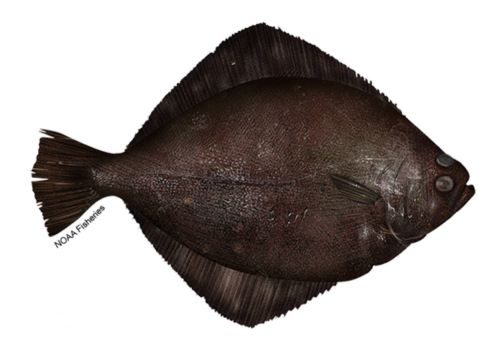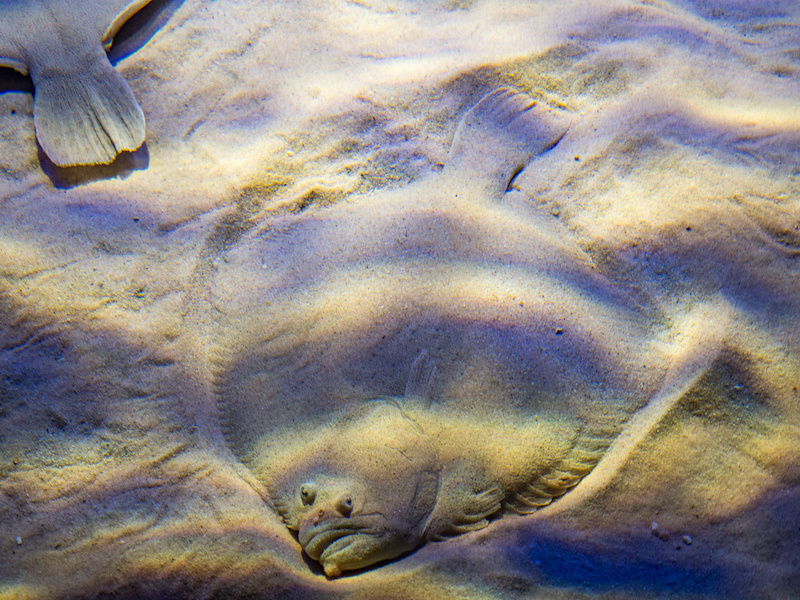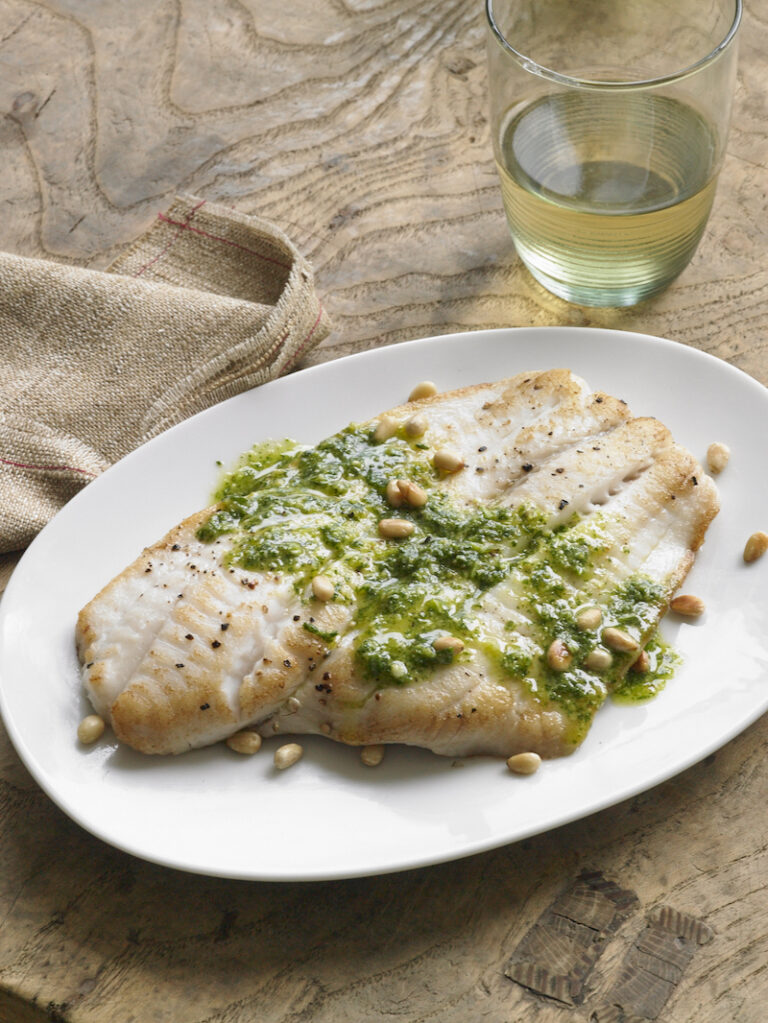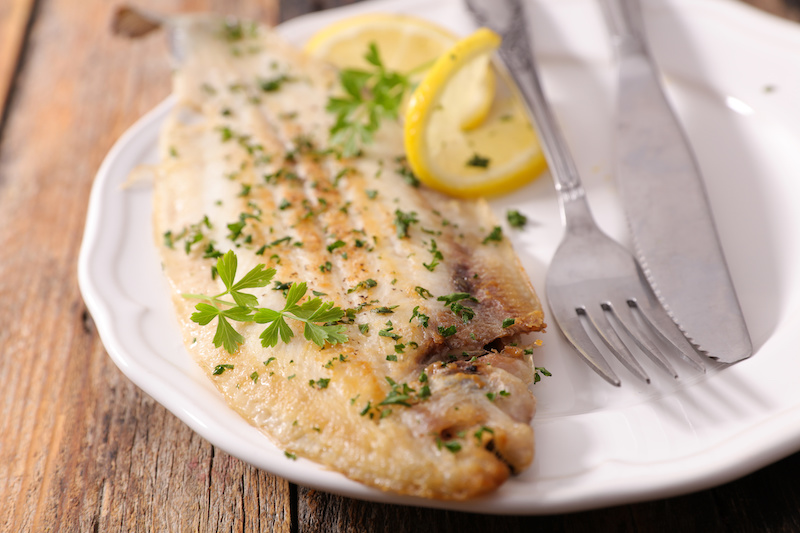Petrale Sole - Our Favorite Flounder
This finny fellow is a flat-out winner.
Mar 07, 2023
Petrale sole (Eopsetta jordani) is a mild and flaky white fish with a sweet, delicate, slightly nutty flavor. You may have encountered it under a different name, such as California sole, brill, petrale, or Jordan's flounder.
Technically, it is not sole but a flounder — indeed, the best-tasting and most desirable of the flounders. On the dinner plate, seafoodies agree: Petrale rules. You're dining with royalty.

Like all regal presences, a certain mystery clings to petrale sole. For example, online sources are evenly divided in its pronunciation between pet-TRA-lee and pet-TRAIL.
That may be because the derivation of the term is Italian, and some prefer the former Italianate pronunciation; others adopt the anglicized latter version.
Richard Walsh, Vital Choice's purchasing manager and a 45-year-veteran of the Pacific seafood industry, pronounces it pet-TRA-lee , so it's wise to follow his lead.
The Roving Eye
Sole and flounder do have differences, but the names get mixed up because of a profound similarity that's undeniably unique among fish: They're born with an eye on each side of their head. As they grow, one eye migrates, and they end up with two eyes on one side.
In petrale sole, that's the right side, which is characteristic of many flounders. In nearly all species of true sole, the eyes wind up on the left, for reasons lost in the eddies of evolution.
After the eye-shift, the petrale, like most flounder and sole, swims at something of a tilt, while the now-eyeless side fades in color and the two-eye side takes on patterns to blend in with the ocean floor.
Eventually the fish settle in the sandy bottom, well camouflaged, with their eyes facing up. Home, sweet home.
More petrale peculiarities

Another oddity (from the human point of view) is that female petrale sole can grow bigger than males — up to 24 inches, compared to 18 inches for males. Both sexes can live up to 35 years.
Petrale sole get around. This Pacific wanderer ranges all the way from Alaska to Coronado Island, off the Mexican state of Baja California. It spawns from November to April off the coast of British Columbia, Washington, and Oregon.
Sometime between their third and eighth birthday, males and females release their sperm and eggs into surface waters, where the eggs are fertilized and hatch within two weeks. The larvae spend their first six months higher in what's called the "water column," where they eat plankton before they become adults and settle near the bottom with their two eyes up.
As bottom-dwellers they eat shrimp and krill, among other food, while avoiding sharks and other predators. In the summer, adults migrate to shallow water.
Yes, it's an eco-responsible choice
Available year-round, U.S. wild-caught petrale sole is "smart seafood choice because it is sustainably managed and responsibly harvested under U.S. regulations," to quote the National Oceanic and Atmospheric Administration (NOAA). Ours is trawler-harvested off the coasts of Washington and Oregon. The fishery is certified by the Marine Stewardship Council, a nonprofit that requires minimizing harm to the environment and other species.
Don't forget the butter!
Sole is a healthful choice, serving up lots of low-fat protein. A little butter won't overwhelm your diet, right? You'll be glad you splurged.

Lightly dust your fillet with a flour you like and simply pan-fry it in butter, and you might swoon. Because petrale sole is so inherently slender and delicate, it needs little time in the pan.
The classic sauces are variations on butter, too. You might try an Italian piccata sauce with white wine, stirring in the butter at the end. Typically piccatas use capers, but this one is flavored with shallots, thyme, chives, and lemon.
French sole food
French sauces use browned clarified butter. Sole meunière, the dish that made Julia Child fall in love with French cuisine, is classically made with a bone-in fillet, but a deboned filet is easier — and what's essential is a high-quality fish, plus parsley, lemon, and the butter. In amandine, you add slivered blanched almonds; in grenobloise, lemon, capers, and croutons.
Tip: Instead of clarifying your butter, you can buy ghee, the Indian version, at specialty shops. The taste is slightly nuttier.
If you opt to bake your petrale sole, be careful not to overcook. At 375 degrees, it could be done in under seven minutes and no more than 15. You might place your fillets over a bed of asparagus then add a butter sauce.
The king of flounders, petrale sole is an elegant choice that reminds us all why we love seafood. Keep it simple, and let your fish shine.

- 4 fillets petrale sole
- 14 cup all-purpose flour
- 12 teaspoon salt
- 14 teaspoon black pepper
- 2 tablespoons butter
- 2 tablespoons olive oil
- 1 lemon, cut into wedges
- fresh parsley, chopped (optional)
Rinse the fillets, pat dry with a paper towel.
In a shallow dish, mix together the flour, salt, and pepper.
Coat each fillet in the flour mixture. Shake off any excess.
In a large nonstick skillet, heat the butter and olive oil over medium-high heat until the butter melts and the mixture is sizzling.
Add the fillets to the skillet. Cook for 2 to 3 minutes on each side until golden brown and cooked through.
Remove the fillets from the skillet and transfer to a plate lined with paper towels to absorb excess oil.
Serve the sole with lemon wedges and chopped parsley, if desired.



